
Classifying and processing ocean tuna products for export. (Photo: Vu Sinh/VNA)
Vietnam is on its way to becoming a high-income economy , with growth rates among the fastest in Southeast Asia.
Strong economic reforms and a methodical development strategy have helped Vietnam maintain impressive growth momentum over the past years.
However, the economy still faces a number of challenges from the international environment, requiring flexible adaptation to ensure long-term sustainable development.
Reform to maintain growth
The International Monetary Fund (IMF) report reiterates the progress Vietnam has made over the past two decades. Per capita income has increased more than 11 times since 2000, showing an impressive growth rate.
Comprehensive reforms in regulation, governance and education can help economies become more resilient to shocks in uncertain times and help the private sector become an engine of growth.
The IMF forecasts that if they continue to pursue comprehensive and synchronized reform packages, developing economies like Vietnam can increase long-term economic output by an average of 1.5-3% within 2-4 years.
However, pushing through reforms requires the country to face political economic challenges and gain consensus from stakeholders.
Similarly, the latest report of the World Bank (WB) also gave a positive outlook for Vietnam's economy, with growth forecast to reach 6.8% in 2025 and 6.5% in 2026. This partly reflects the growth momentum from public investment, exports and foreign direct investment (FDI) flows.
However, the WB said the economy also faces many challenges due to its heavy dependence on exports and external factors such as slowing global growth and trade tensions.
The latest report published in March 2025 by the World Bank recommends that, to cope with increasing uncertainties, Vietnam needs to implement strategies to sustain growth, including boosting public investment, addressing weaknesses in the financial sector, enhancing the resilience of the energy sector and promoting structural reforms.
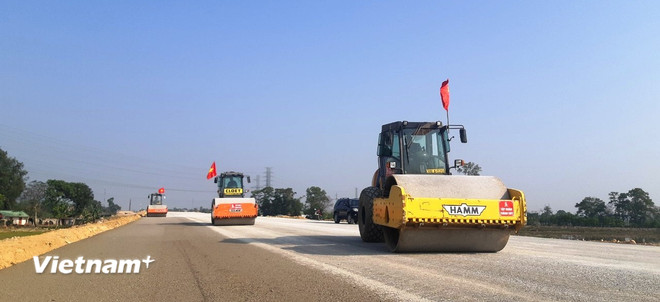
Contractors construct a section of the Eastern North-South Expressway Project. (Photo: Viet Hung/Vietnam+)
One of the important strategies to help Vietnam cope with global economic challenges is to boost public investment.
The WB recommends that Vietnam should take advantage of fiscal space to expand investment in infrastructure, transport and energy, to create long-term growth momentum and reduce dependence on exports.
In addition, foreign direct investment (FDI) continues to be an important pillar of the economy. The World Bank forecasts that FDI into Vietnam will remain at around US$25 billion per year, demonstrating the attractiveness of the Vietnamese market to international investors.
Along with the WB and IMF, many international organizations also gave positive assessments of Vietnam's economy.
According to Fibre2Fashion (India), Vietnam's Gross Domestic Product (GDP) is expected to increase by nearly 8% in the first quarter of 2025, creating a foundation to achieve the annual growth target.
Meanwhile, Standard Chartered Bank forecasts Vietnam's GDP to grow by 6.7% in 2025 and 7.5% in the first half of the year, thanks to abundant FDI inflows, especially into manufacturing and real estate, along with the recovery of tourism, export growth and industrial production.
Trusted trading partner
With its impressive growth rate, Vietnam is increasingly asserting its position on the world trade map. New Zealand's rnz.co.nz news site recently commented that Vietnam is currently the fastest growing economy in Southeast Asia.
In particular, two-way trade between Vietnam and New Zealand reached 1.54 billion USD, showing the attractiveness of the Vietnamese market to exporters.
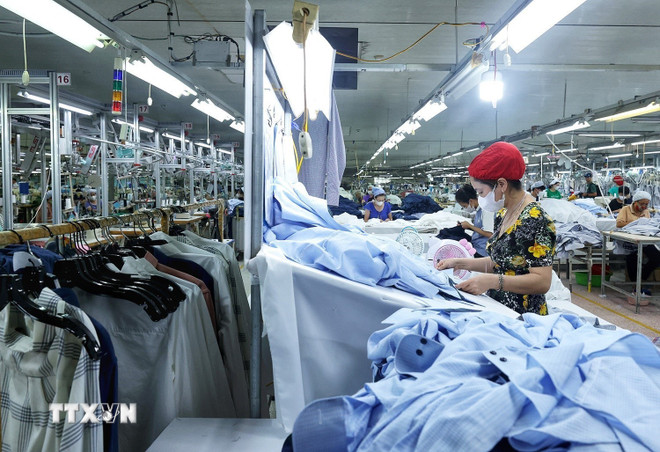
Textile and garment production for export. (Photo: Tuan Anh/ VNA)
Rising incomes and changing consumer behavior among Vietnamese people are creating new opportunities for foreign businesses.
New Zealand Trade and Investment Minister Nicola Griggs said that Vietnamese consumers’ growing appetite for premium food and beverage products has opened up huge potential for New Zealand businesses. This is a prime example of how Vietnam’s open economy is benefiting both sides.
Prospects of becoming an emerging market
One of the factors that could create a big change for the Vietnamese economy in the coming time is the possibility of upgrading the stock market from a frontier market to an emerging market in 2025 according to FTSE Russell's assessment.
If this is achieved, Vietnam can attract larger investment flows from global investment funds, thereby creating favorable conditions for domestic enterprises to access capital and expand their scale.
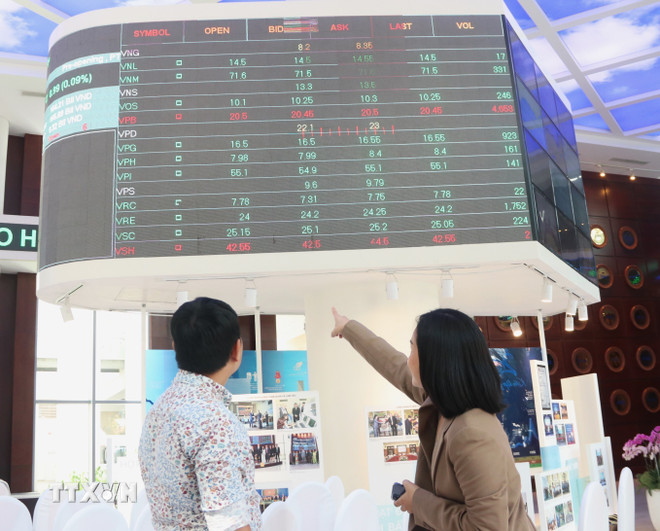
Investors monitor stock market developments at the Ho Chi Minh City Stock Exchange (HOSE). (Photo: Hua Chung/VNA)
According to Mr. Gary Harron, Head of Securities Services, HSBC Vietnam, over the past decade, the Vietnamese stock market has grown strongly.
VN-Index increased 2.3 times, market capitalization increased 6.4 times and liquidity increased 3.8 times.
In 2024 alone, VN-Index will increase by 12.9%, capitalization will reach nearly 70% of GDP and the number of trading accounts will exceed 9 million. Liquidity will also reach a high level.
These figures show that the growth of Vietnam’s stock market is not a barrier to upgrading. However, in addition to quantitative indicators, FTSE Russell’s qualitative criteria such as market accessibility and transparency also play an important role.
According to Mr. Gary Harron, Vietnam has implemented many policies to improve market quality and meet FTSE Russell's criteria. These reforms help increase transparency, reduce risks and create confidence for both domestic and international investors.
Although some barriers remain, the current pace of reform shows that Vietnam is making efforts to achieve emerging market standards./.
(TTXVN/Vietnam+)
Source: https://www.vietnamplus.vn/kinh-te-viet-nam-qua-goc-nhin-quoc-te-co-hoi-but-pha-post1023896.vnp


![[Photo] National Assembly Chairman Tran Thanh Man receives United Nations Secretary-General Antonio Guterres](https://vphoto.vietnam.vn/thumb/1200x675/vietnam/resource/IMAGE/2025/10/25/1761390815792_ctqh-jpg.webp)

![[Photo] Prime Minister Pham Minh Chinh receives United Nations Secretary-General Antonio Guterres](https://vphoto.vietnam.vn/thumb/1200x675/vietnam/resource/IMAGE/2025/10/25/1761390212729_dsc-1484-jpg.webp)
![[Photo] Prime Minister Pham Minh Chinh and United Nations Secretary-General Antonio Guterres attend the Press Conference of the Hanoi Convention Signing Ceremony](https://vphoto.vietnam.vn/thumb/1200x675/vietnam/resource/IMAGE/2025/10/25/1761391413866_conguoctt-jpg.webp)




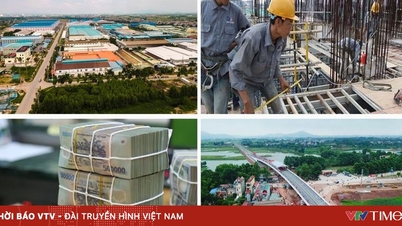






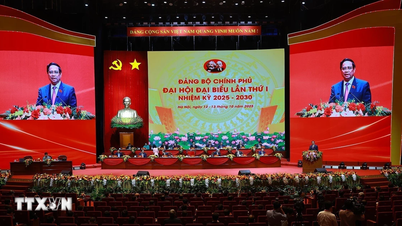



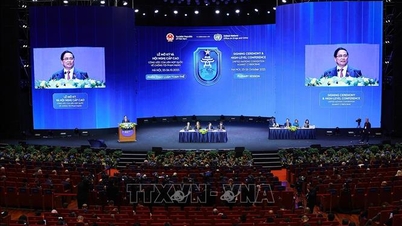
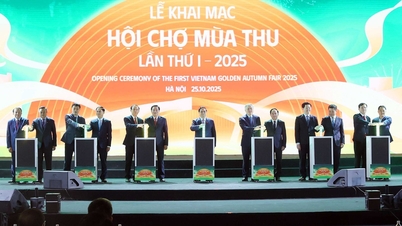
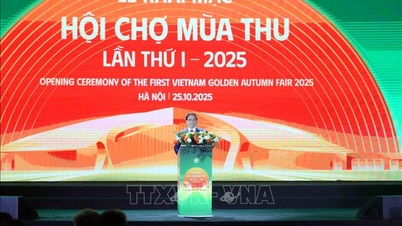









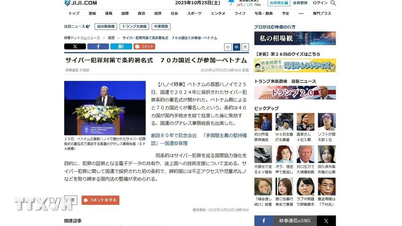
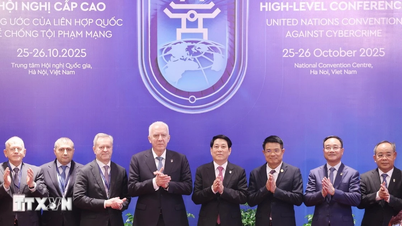
![[Photo] General Secretary To Lam meets with General Secretary and President of Laos Thongloun Sisoulith](https://vphoto.vietnam.vn/thumb/1200x675/vietnam/resource/IMAGE/2025/10/25/1761380913135_a1-bnd-4751-1374-7632-jpg.webp)













































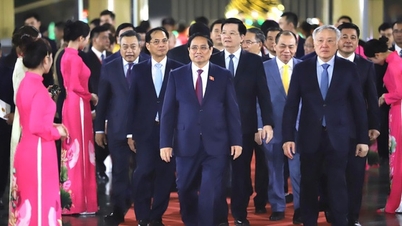
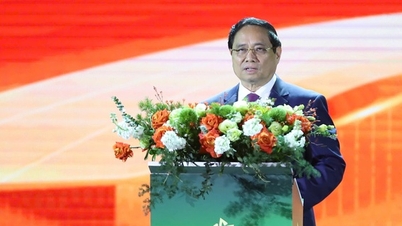
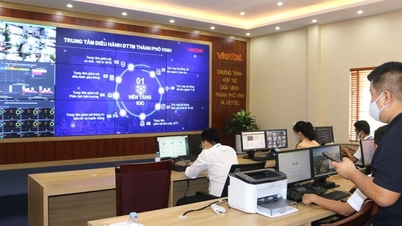


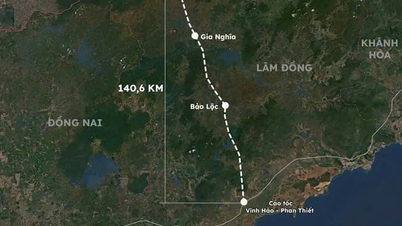























Comment (0)